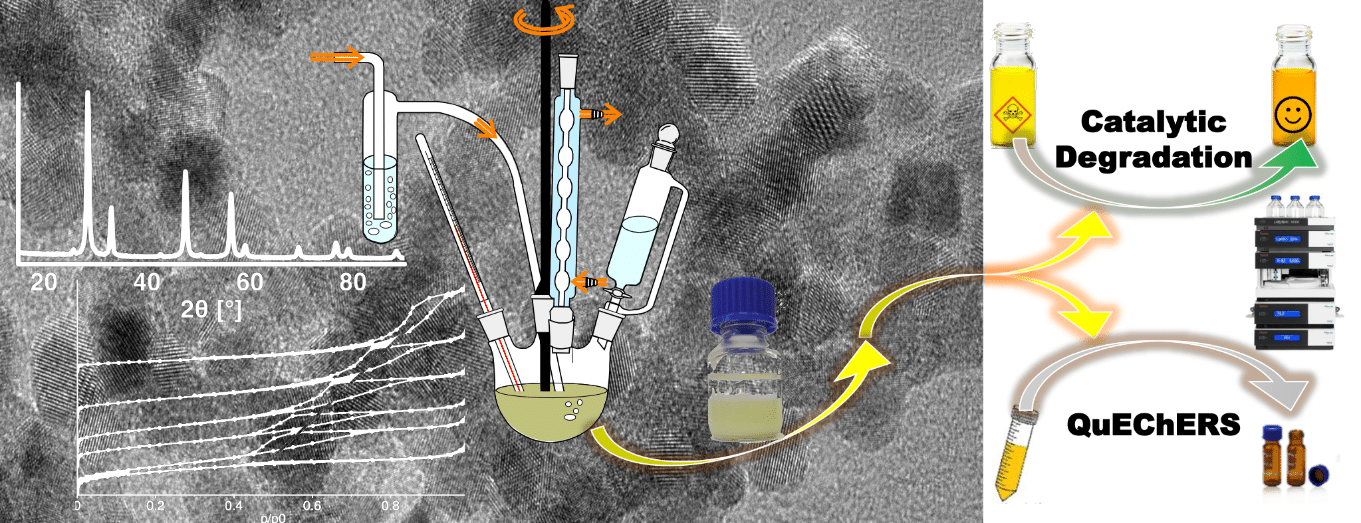
16th NARECOM – NAnoEnviCz REsearch COmmunity Meeting
Nanomaterials for different practical applications will be introduced by scientists from the Institute of Inorganic Chemistry of the CAS in Řež. The 16th NARECOM will take place on Wednesday, April 13, 2022, at 2:30. p.m. Join Zoom Meeting https://cesnet.zoom.us/j/96667755242
13th April 2022 from 2:30 p.m.
Nanomaterials (not only) for environmental applications
Mgr. Jakub Tolasz, Institute of Inorganic Chemistry of the CAS, Prague - Řež
The rapid growth of the global population has significantly increased energy consumption and pressure on the environment. In the past two decades, the evolution of nanotechnology has been an ever-improving process in the design, discovery, and creation of new types of nanomaterials for environmental-related applications. As part of the ongoing NanoEnviCz projects, new types of materials with improved properties have been developed, such as nanocomposites, doped metal oxides, or materials with more complicated structures (e.g., composites with graphene and graphene oxide).
Environmental applications
Ing. Martin Šťastný, Ph.D., Institute of Inorganic Chemistry of the CAS, Prague - Řež
Nanostructured metal oxides have been successfully used to decompose organophosphorus pesticides and other highly toxic substances, including chemical warfare agents and their simulants, or cytostatics. More recently, significant advances have been made in their synthesis and application to some other pollutants, such as drugs or endocrine disruptors. Several modern instrumental methods are used to study nanomaterials, such as HPLC in conjunction with mass spectrometry (HPLC-MS) or in-situ infrared spectroscopy (FTIR).
Analytical use
Bc. Hana Horká, Institute of Inorganic Chemistry of the CAS, ALMA, Prague - Řež,
Department of Analytical Chemistry, Faculty of Science, Charles University, Prague
QuEChERS-based methods are very efficient, fast and accurate, and improvements in the clean-up step are important, especially for complex matrices, like highly fatty commodities, typically oils. Significant progress has been made in the application of nanocrystalline sorbents for oil matrix removal in the determination of selected volatile degradation products in drying oils.